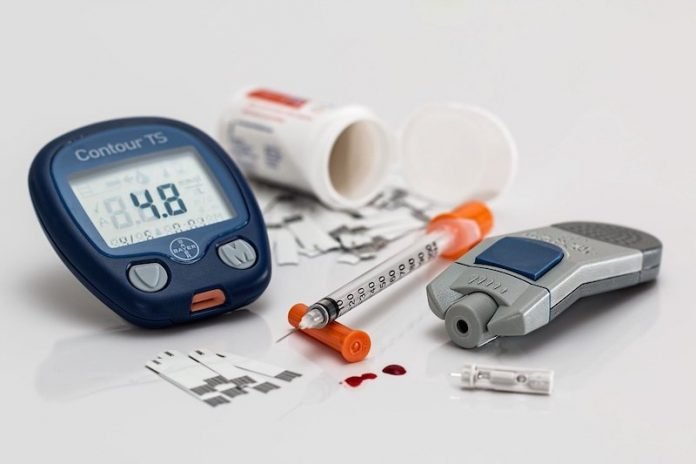
In a new study from Penn State College of Medicine, researchers found a type of drug already used to treat obesity and Type 2 diabetes, when taken six months prior to the diagnosis of COVID-19, was linked to a lower risk of severe disease and death.
They analyzed electronic medical records of patients with type 2 diabetes and concluded that the drugs, called glucagon-like peptide-1 receptor (GLP-1R) agonists, should be further evaluated for potential protective effects against COVID-19 complications.
Patients living with pre-existing conditions like diabetes are at increased risk of severe COVID-19 complications, including death.
A recent study from England reported that close to a third of COVID-19-related deaths in the country were among patients living with Type 2 diabetes.
In previous research, the team tested how GLP-1R agonists could be used to treat substance use disorders.
They hypothesized that patients with Type 2 diabetes who are taking these same medications, which they estimate to be less than 15% of Type 2 diabetes patients in the U.S., might have some level of protection from severe COVID-19 outcomes based on their anti-inflammatory properties.
Patients with Type 2 diabetes often struggle with dysregulated inflammation, or swelling of body tissues. Overactive inflammatory responses have been implicated in severe COVID-19 cases and deaths.
In this study, the researchers analyzed electronic medical records of nearly 30,000 people with a positive laboratory test for SARS-CoV-2, the virus that causes COVID-19.
They found patients who were taking GLP-1R agonists and/or other diabetes medications within six months prior to their COVID-19 diagnosis had a 33.0% decreased risk of hospitalization, a 38.4% decreased risk of respiratory complications and a 42.1% decreased risk of death.
Because of these promising findings, the team said more clinical trials are needed to determine if the link between use of GLP-1R agonists and reduced risk for severe COVID-19 outcomes are due to a cause-and-effect relationship.
There are also questions about the timing of administration of GLP-1R agonists in relation to its supposed protective effects and whether the protective effects could be applied to patients without Type 2 diabetes.
If you care about diabetes, please read studies about a new way to reverse type 2 diabetes and deadly liver disease and findings of this diabetes drug may harm your heart health.
For more information about diabetes and your health, please see recent studies about the real cause of type 2 diabetes, and a way to reverse it and results showing that a new drug combo may help restore body’s ability to produce insulin, treating diabetes.
The study is published in the journal Diabetes. One author of the study is Patricia “Sue” Grigson.
Copyright © 2021 Knowridge Science Report. All rights reserved.



